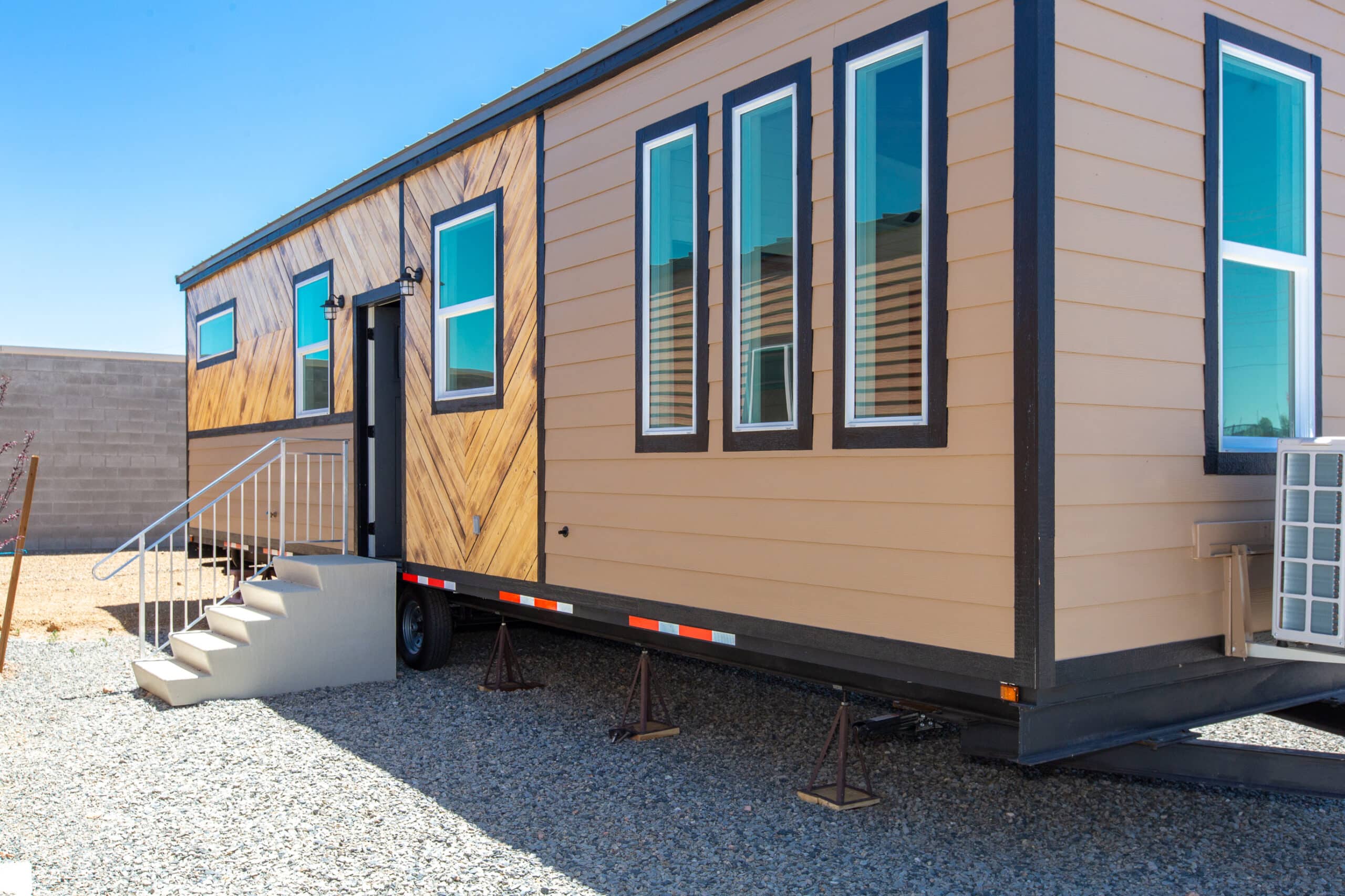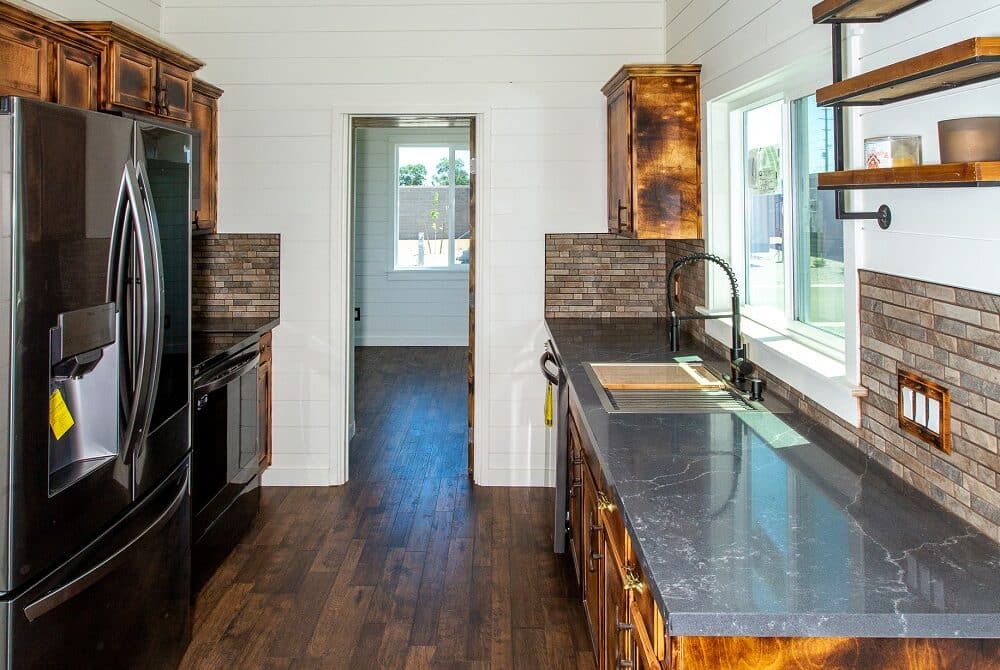Table of Contents
Tiny houses have become increasingly popular in recent years, offering a unique and affordable way to own your own home. From the freedom of mobility to the potential for building equity, there are many advantages to living in a tiny house. But before you jump into financing a tiny home, it’s important to consider the different types of loans available and what is best for your financial situation.
In this article, we will discuss what you should consider before financing a tiny house, the benefits of living in one, and the different types of loans available for financing a tiny home.
Living in a tiny house offers great potential for freedom and mobility. Whether you want to downsize or simply live more sustainably, there are many advantages that come with living in a smaller space. But before you decide to finance a tiny house, it’s important to consider all of your options and do your research on the different types of loans available.
It can also be helpful to speak with an experienced loan officer who can provide advice on which type of loan is best for your financial situation. With careful consideration and planning, financing a tiny house can be an exciting and rewarding experience!
Things to Consider Before Financing a Tiny House
Tiny houses have become increasingly popular in recent years as people look for more affordable and sustainable living options. But financing a tiny house can be tricky, and it’s important to do your research before taking out a loan. Here are some things to consider before financing a tiny house.
Can You Get a Tiny House Mortgage?
Mortgages for tiny houses are becoming more available, but they are not always easy to get. Most lenders won’t offer mortgages for homes that are smaller than 400 square feet, so if your tiny house is under that size you may have trouble getting approved. Additionally, many lenders will require that your tiny house be built on a permanent foundation or registered with the DMV, which can add additional costs to the purchase price of the home.

Charging the Cost of Your Tiny Home to a Credit Card
Using a credit card to finance your tiny home is an option, but it’s not usually recommended due to the high interest rates associated with credit cards. Additionally, most credit cards have spending limits that may be too low to cover the cost of your tiny home. If you do decide to use a credit card, make sure you read all of the terms and conditions carefully and pay off the balance as soon as possible.
Benefits of Living in a Tiny House
Living in a tiny house has its advantages. A mobile lifestyle and freedom are two of the biggest benefits of living in a tiny house. You can take your home anywhere with you – from camping trips to road trips – without having to worry about finding housing accommodations along the way. Additionally, since most tiny houses are relatively small they can often fit into places where traditional homes cannot go – such as parks or campgrounds – giving you more options when it comes to where you live.
However, there are some drawbacks associated with living in a tiny house as well. For example, you won’t be able to park it just anywhere; many cities have regulations regarding where you can park your tiny home so make sure you check local laws before setting up shop somewhere new. Additionally, building equity in a tiny house is difficult since most lenders won’t offer mortgages for them; this means that if you want to build equity in your home, you’ll need to come up with other ways of paying off your loan or saving money for upgrades and repairs over time.
Types of Loans for Financing a Tiny House
When it comes time to finance your tiny house there are several different types of loans available: personal loans, RV loans, manufacturer loans, and construction loans. Personal loans typically have lower interest rates than credit cards but require good credit scores; RV loans are specifically designed for recreational vehicles like RVs and travel trailers; manufacturer loans allow buyers to purchase directly from manufacturers at discounted prices; and construction loans provide funds during the building process so that owners don’t have to pay upfront costs out-of-pocket. Each type of loan has its own pros and cons so make sure you do your research before deciding which one is right for you.
In conclusion, financing a tiny house can be tricky but there are several different options available depending on what kind of budget and lifestyle you’re looking for. Do your research beforehand so that you understand all of the costs associated with buying and maintaining a tiny home before committing yourself financially.
Benefits of Living in a Tiny House
Living in a tiny house has become increasingly popular over the past few years. The small size and mobility of these homes offer many unique benefits that full-sized homes cannot provide. In this section, we will discuss some of the advantages of living in a tiny house.

Mobile Lifestyle and Freedom
One of the main reasons people choose to live in a tiny house is because it offers them the freedom to move around as they please. These homes are much smaller than traditional houses, so they can be transported easily with just a truck or trailer. This allows people to take their home with them wherever they go, enabling them to explore different parts of the country and experience new places without having to worry about finding somewhere to stay.
Another benefit of having a mobile lifestyle is that you don’t have to worry about being tied down to one location. If you get tired of living in one place, you can simply pack up your tiny house and move somewhere else without having to worry about selling your property or finding a new place to live.
You Can’t Park it Anywhere
Although living in a tiny house offers many benefits, there are also some downsides that come along with it. One downside is that you can’t park it anywhere you want. Since these homes are so small, they must be placed on land that is zoned for recreational vehicles (RVs). This means that if you want to live in your tiny house full-time, you must find land that is zoned for RVs or find an RV park that will allow you to park your home there long-term.
Building Equity
The last benefit of living in a tiny house is that it can help you build equity over time. Unlike traditional houses which require hefty down payments and large monthly mortgage payments, tiny houses typically require much less upfront costs and smaller monthly payments. This means that more money can be saved each month instead of being put towards paying off debt. Over time, this can help build up equity which can then be used for other investments or purchases such as buying additional land or upgrading your tiny house.
Living in tiny houses offers mobility, freedom, and equity benefits.
Types of Loans for Financing a Tiny House
A tiny house is an excellent way to live a minimalist lifestyle and save money. However, financing a tiny home requires careful consideration. There are various loan types available that can help you finance your dream tiny house.
Personal Loan
A personal loan is one of the most popular ways to finance a tiny house. Personal loans are typically unsecured loans with fixed interest rates and repayment terms. They don’t require collateral, so you don’t have to put up any assets to secure the loan. Personal loans are usually easier to get than other types of financing and can be used for virtually any purpose, including financing a tiny house.
RV Loan
RV loans are specifically designed for recreational vehicles such as motor homes, campers, and travel trailers. These loans are similar to auto loans in that they typically have lower interest rates than other types of financing. rv loans also offer flexible repayment terms and may be easier to qualify for than traditional mortgages or construction loans.
Manufacturer Loan
If you purchase your tiny home from a manufacturer, they may offer their own financing options. Manufacturer loans typically come with favorable terms such as low interest rates and flexible repayment plans. They may also require less paperwork than other types of financing since the manufacturer already has all the necessary information about the product they’re selling.
Construction Loan
A construction loan is specifically designed for people who want to build their own tiny home from scratch. These loans provide funds for materials and labor costs associated with building your own home, which can be very expensive if done by professionals. Construction loans typically require collateral like land or another asset, so it’s important to consider whether you have enough assets to secure this type of loan before applying.
Overall, there are many different types of financing available for those looking to purchase or build their own tiny house. It’s important to do research on each option before making a decision on which type of loan is best suited for your needs and financial situation.
Conclusion
Tiny houses offer a unique and affordable living option, but financing one can be a challenge. Before taking out a loan to finance your tiny house, it is important to consider whether you can get a mortgage for a tiny house, if you should charge the cost of the home to a credit card, and what types of loans are available for financing.
The benefits of living in a tiny house include a mobile lifestyle and freedom, but it is important to remember that you cannot park it just anywhere. Building equity is also another great benefit of owning a tiny home.
When it comes to financing your tiny house, there are several different types of loans available including personal loans, RV loans, manufacturer loans, and construction loans. Each loan has its own unique features and benefits so it is important to do your research before making a decision.
Overall, financing a tiny house can be challenging but with the right research and preparation, it can be done. With careful consideration of all factors involved and an understanding of the different types of loans available, you can find the best loan for your situation.
Tiny houses offer unique, affordable living with mobile lifestyle & freedom; financing can be challenging, but personal, RV, manufacturer & construction loans
available; research & preparation key to finding best loan.


